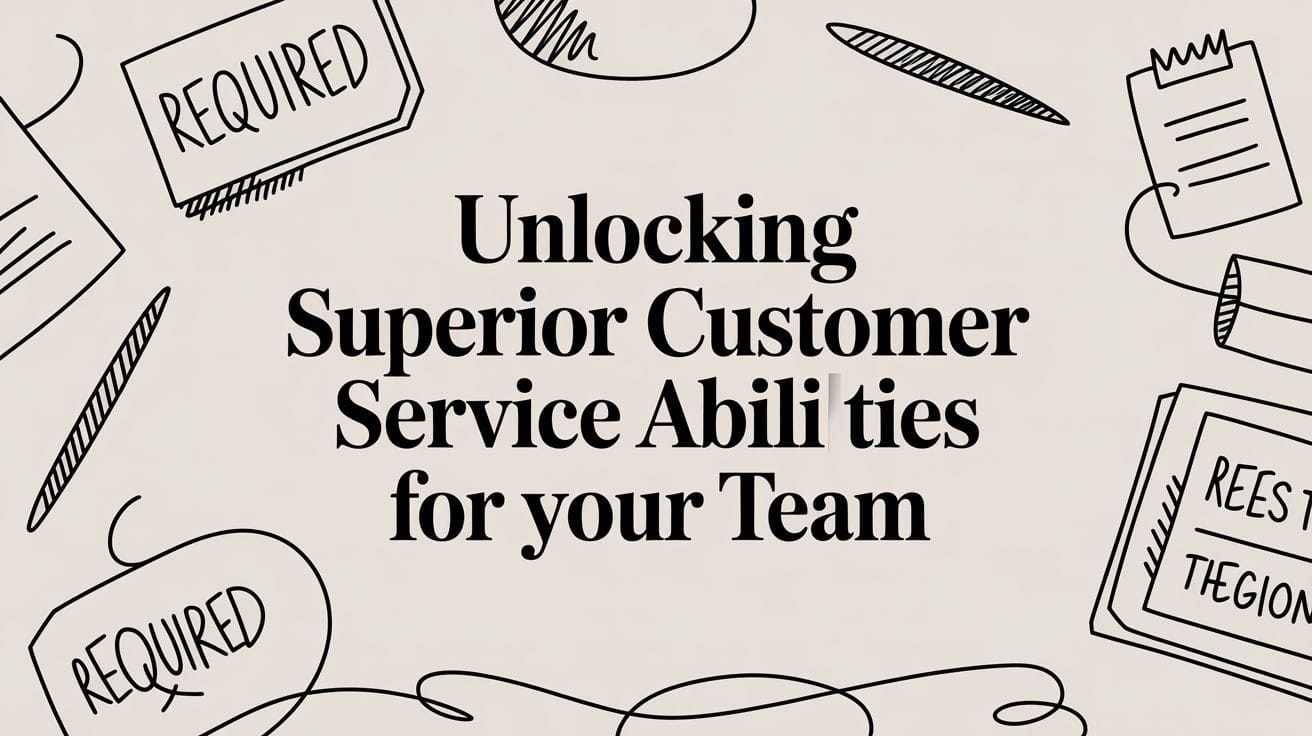Exceptional customer service can be the deciding factor between a one-time purchase and a lifelong customer relationship. In today's competitive market, distinguishing your business through outstanding service not only boosts customer satisfaction but also encourages brand loyalty and company growth. Here are ten proven strategies to elevate your customer service and ensure your customers keep coming back.
1. Understand Customer Needs
To effectively serve your customers, it's crucial to first understand their needs. Conduct regular surveys and feedback sessions to gather insights into their expectations and pain points. Utilize social listening tools to monitor customer discussions about your brand and adjust your service strategies accordingly.
Empathy Matters
Encourage your team to empathize with your customers. When team members can put themselves in the customer’s shoes, they can provide more personalized and effective solutions.
2. Empower Your Team
Your team is the frontline of your customer service. Providing them with the autonomy to make decisions can enhance service delivery significantly. Train them thoroughly and trust them with the authority to solve problems on the spot, reducing resolution times and boosting customer satisfaction.
Continuous Training
Regular training sessions ensure your team is updated with the latest tools and techniques. Consider implementing role-playing scenarios to simulate real-life challenges.
3. Utilize Technology
Invest in technology that supports your customer service goals. CRM software, AI chatbots, and automated response systems can handle routine inquiries, allowing your team to focus on more complex issues. Ensure that your systems are integrated and data flows seamlessly between departments for faster response times.

4. Build a Comprehensive Knowledge Base
A well-structured knowledge base allows customers to quickly find answers to common questions without waiting for assistance. This not only saves time for your customers but also reduces the volume of inquiries handled by your team, freeing them for more substantial tasks.
Ensure Accessibility
Ensure the knowledge base is easy to navigate and accessible across various platforms and devices. Regularly update content to reflect new information and customer feedback.
5. Personalize Your Service
Personalization is key to strong customer relationships. Utilize customer data to tailor interactions based on past behaviors and preferences. Simple gestures, such as using a customer’s name, recognizing birthdays, or acknowledging past purchases, can significantly enhance the personal touch.
6. Collect Feedback Consistently
Continuous feedback collection helps track customer satisfaction and service quality over time. Use short surveys after each customer interaction to gather actionable insights and drive improvements. Ensure your customers know their feedback is valued and being utilized to better services.
7. Respond Quickly
Modern customers expect speedy responses. Implement service level agreements (SLAs) to maintain standards and track response times. Aim to resolve issues on the first interaction, reducing the need for follow-ups and enhancing customer satisfaction.

8. Foster a Positive Service Culture
Creating a positive culture within your service team can improve morale and service quality. Encourage communication, celebrate successes, and hold regular meetings to keep everyone aligned with company goals and values. A motivated team often translates to happier customers.
9. Offer Omni-Channel Support
Customers appreciate the flexibility of reaching out through their preferred channels. Whether it’s through phone, email, chat, or social media, ensure a consistent experience. Seamless integration across channels prevents frustration and allows for smooth transitions during interactions.
10. Analyze and Adapt
Regularly analyze customer interactions and service metrics. Identify patterns or recurring issues and strategize on long-term solutions. Leveraging data analytics can help predict future trends and prepare your team to meet evolving customer demands.
FAQs
What is the importance of continuous training for customer service teams ?
Continuous training equips customer service teams with the latest skills and knowledge, enabling them to handle customer inquiries more effectively and efficiently, which boosts overall customer satisfaction.
Why is quick response time crucial in customer service ?
Fast response times are crucial as they show customers that their time is valued and that their issue is a priority. This paves the way for quicker resolutions and enhances customer experience.
How does personalization impact customer service ?
Personalization shows customers that you value them as individuals. It creates a more meaningful interaction and can lead to increased customer loyalty and satisfaction, as buyers feel recognized and appreciated by the brand.
What role does technology play in improving customer service ?
Technology streamlines customer service processes by automating routine tasks, providing real-time data, and facilitating more efficient communication. This allows human agents to focus on complex inquiries and improves overall service quality.
How can businesses effectively collect and utilize customer feedback ?
Businesses can collect customer feedback through surveys, social media, and direct interactions. Analyze this feedback to identify service gaps and areas of improvement, ensuring that customer opinions lead to actionable change.









